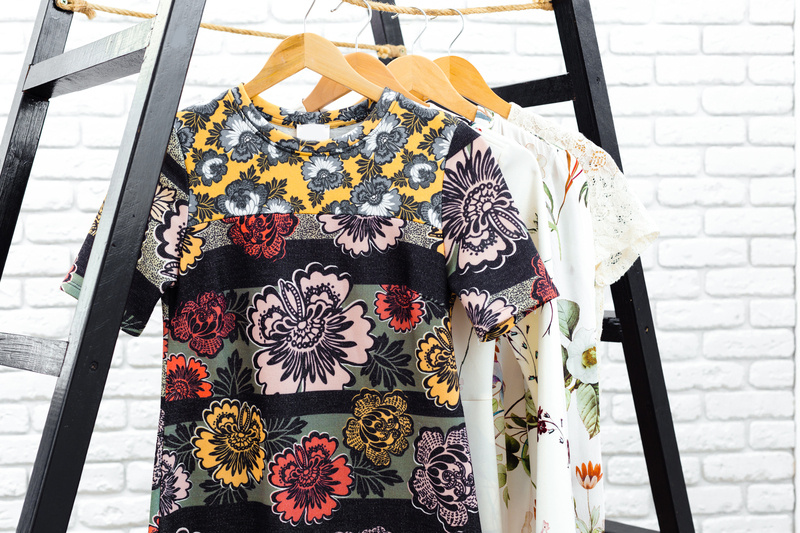Eco-Friendly Plant Pot Disposal Options
Posted on 14/09/2025
Eco-Friendly Plant Pot Disposal Options: Sustainable Ways to Dispose of Plant Pots
In recent years, gardening and houseplant culture have boomed, introducing millions of new plant lovers to the joys of cultivating greenery indoors and out. With this surge, one hidden issue has emerged: the mounting waste of used plant pots. Eco-friendly plant pot disposal options have become essential for environmentally conscious gardeners, horticulturists, and businesses alike. This guide explores sustainable methods for disposing of plant pots and offers actionable steps for minimizing your environmental footprint.

Understanding the Problem of Plant Pot Waste
Before exploring responsible disposal, it's important to understand why traditional plant pot disposal is an environmental concern. Plant pots are often made from plastics such as polypropylene or polyethylene, materials that are not always recyclable via curbside programs.
- Single-use plastic pots: Most nurseries and retailers use disposable plastic pots, millions of which end up in landfills annually.
- Limited recycling options: Not all plastics used for plant pots are accepted by municipal recycling programs due to their composition and contamination with soil.
- Slow decomposition: It can take hundreds of years for plastic pots to break down in landfills, leading to long-term pollution.
Addressing these challenges requires a shift towards green plant pot disposal solutions and rethinking how we purchase, use, and dispose of planter containers.
Top Eco-Friendly Plant Pot Disposal Options
From reusing and recycling to embracing biodegradable alternatives, there are a variety of environmentally-friendly pot disposal methods you can implement at home or in a community setting.
1. Reuse: The Easiest Sustainable Option
The simplest and most eco-conscious way to dispose of plant pots is to reuse them. Here's how you can extend the life cycle of your plant containers:
- Repot new seedlings: Clean and sterilize old pots to start seeds or propagate cuttings each spring.
- Gift to gardening friends: Share excess pots with local plant enthusiasts, garden clubs, or schools for horticultural projects.
- Craft projects: Upgrade pots with paint or decorative wraps for creative home or outdoor displays.
- Organizational tools: Use old pots to organize tools, hardware, or even as scoopers for pet food or gardening supplies.
*Pro tip: Many local nurseries will happily accept intact used pots for reuse--call ahead to see if this service is available in your community.*
2. Recycling Plant Pots Responsibly
Can you recycle plant pots? Yes--but with some caveats. Not every plastic pot is accepted in standard recycling bins. Here's how to navigate plastic plant pot recycling:
- Check the recycling symbol: Pots stamped with a triangle and a number (commonly #2 or #5) are recyclable in many areas, but availability varies. Avoid recycling pots without these symbols.
- Rinse thoroughly: Remove all soil, labels, and organic matter to avoid contamination.
- Locate a drop-off site: Research local garden centers, hardware stores, or recycling centers; many offer seasonal programs specifically for plastic pots.
- Participate in nursery recycling: Major retailers, such as Lowe's or Home Depot, often run return programs accepting used pots for recycling.
*Tip: If in doubt, contact your local waste authority or use online tools like Earth911.com to find specialized recycling facilities for garden plastics in your area.*
3. Embrace Biodegradable and Compostable Pots
For future purchases, opt for biodegradable, compostable, or natural fiber plant pots. These containers break down naturally and avoid landfill waste altogether.
- Coconut coir pots: Made from coconut husks, coir pots decompose and nourish the soil when planted directly in the ground.
- Peat pots: Created from compressed peat moss, these are excellent for seed starts and can be planted whole.
- Paper and cardboard pots: Compost easily and offer a zero-waste option for short-term planting needs.
- Wood fiber pots: Lightweight and break down over time while adding organic matter to the soil.
*Note: While biodegradable pots are an excellent alternative, ensure they are certified for compostability and free from harmful binders or coatings.*
4. Upcycle Plant Containers for Creative Uses
Before tossing old pots, consider upcycling. With a little imagination, plastic, terracotta, or ceramic pots can find new life as:
- Bird baths or feeders
- DIY garden art
- Toy storage bins
- Desk organizers
- Mini compost bins
- Watering trays
Get creative! Share your upcycled pot projects online to inspire others to adopt innovative plant pot disposal practices.
5. Donate to Community Gardens and Programs
Many community gardens, horticultural therapy groups, and schools are happy to receive donations of used pots. Organize a neighborhood collection or contact these organizations directly.
- Plant swaps and sales: Local plant events often need pots for plant cuttings or seedlings.
- Nonprofits and urban farms: Support gardening initiatives by donating surplus containers.
- Schools and youth programs: Encourage the next generation of gardeners by supplying their projects.
*Always confirm donation guidelines and clean pots before dropping them off.*
Tips to Avoid Plant Pot Waste in the First Place
Prevention is the ultimate form of eco-friendly plant pot disposal. Here are actionable strategies for reducing your pot waste from the start:
- Purchase plants in compostable pots: Seek out nurseries and garden centers that use sustainable packaging or let you bring your own containers.
- Buy bare-root plants: These come without plastic pots and minimize packaging waste.
- Grow from seeds or cuttings: Reduces need for commercial plastic containers entirely.
- Participate in plant swaps: Exchange plant cuttings with friends or community members, reusing available pots.
Frequently Asked Questions on Sustainable Plant Pot Disposal
Can all plastic plant pots be recycled?
*No, not all plastic pots are recyclable. Pots without resin identification codes or those contaminated with soil are often rejected by recycling plants. Always check your local guidelines and look for eco-friendly plant pot recycling options in your area.*
What should I do with broken or cracked plant pots?
*For broken plastic pots, see if pieces can be creatively upcycled (think mosaic projects or drainage trays). For terracotta or ceramic pots, the shards can serve as pot drainage, mulch, or decorative garden features.*
Are there any alternatives to plastic plant pots?
*Yes! Seek out biodegradable, recycled, or upcycled containers made from coconut coir, peat, cardboard, bamboo, or wood fiber. Some companies even offer take-back programs for their own pots.*
Benefits of Choosing Eco-Friendly Plant Pot Disposal Methods
- Reduces landfill waste: Less plastic in landfills means lower pollution and environmental impact.
- Supports circular economy: Recycling and reusing plant pots reduce resource extraction and support a more sustainable economy.
- Decreases carbon footprint: Sustainable disposal and production methods lower carbon emissions compared to traditional single-use plastics.
- Inspires eco-conscious habits: Encourages mindful gardening and responsible consumer practices.

The Future of Sustainable Plant Pot Disposal
As awareness grows, there are more innovative solutions than ever for sustainable plant pot disposal. From new recyclable materials and improved municipal recycling to deposit-return schemes for horticultural plastics, the industry is shifting. As consumers, we have significant power to drive demand for eco-friendly plant pots and disposal options through our choices and advocacy.
Looking forward, we can expect more plant nurseries and garden retailers to incorporate take-back programs, offer compostable pot options, and educate customers on sustainable practices. Adopting these changes across the horticultural sector could dramatically reduce the impact of plant pot waste worldwide.
Conclusion: Make a Green Commitment with Your Plant Pots
Choosing eco-friendly plant pot disposal options isn't just a responsible decision--it's a chance to model sustainable habits, support community initiatives, and reduce your environmental footprint. Reuse, recycle, upcycle, donate, and choose biodegradable when possible. Every small action contributes to a greener planet and a more responsible gardening culture.
Let's grow together--responsibly!

